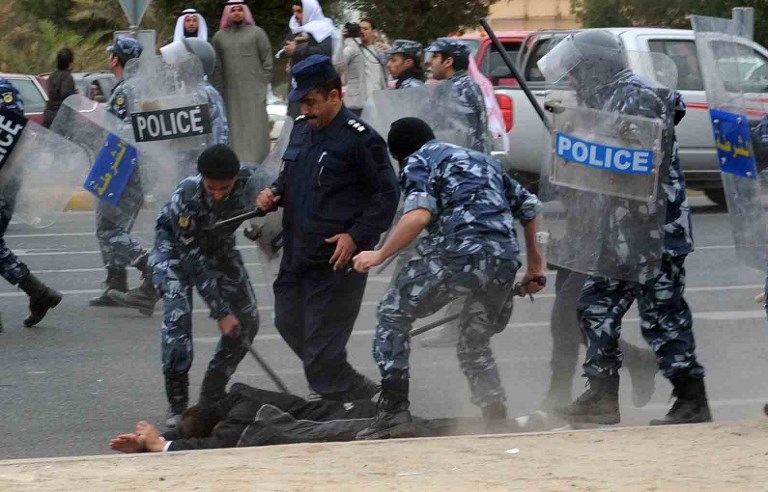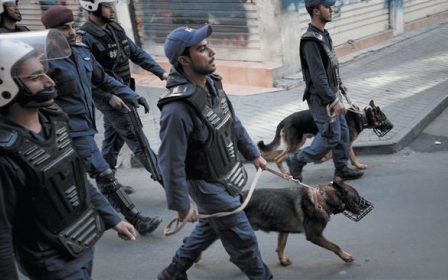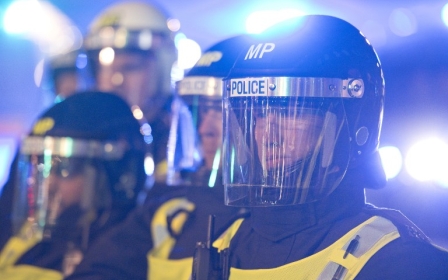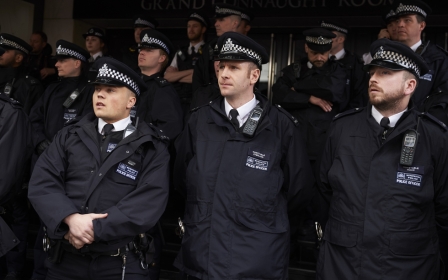UK police earn millions training forces from Saudi Arabia and its allies

The British government has earned more than $4.4m by training the police forces of Middle East states with authoritarian rights records, it has been revealed
The College of Policing, an arm of the Home Office, has provided training to 23 countries, including Saudi Arabia since it was set up by Theresa May in 2012, the Guardian reported.
The training includes courses on “international leadership” and “international strategic leadership”, but has been attacked as “another example” of the UK putting trade and security above human rights concerns.
Documents obtained by the newspaper after a freedom of information request show that 90 percent of the funds earned by the college came from countries with the death penalty on the statute books.
Saudi Arabia’s interior ministry is the biggest recipient of leadership training and paid more than $1.6m for 815 days’ training since 2011. During the same period Saudi Arabia executed 641 people, according to rights group Reprieve.
“It is yet another example that when trade deals and security alliances are on offer in the Middle East and elsewhere around the world, Theresa May’s government throws any concern for human rights out the window,” said Emily Thornberry, the shadow foreign secretary.
Bahrain, UAE, Oman and Kuwait, where the death penalty remains legal, together paid more than $1.7m to the organisations, while 18 countries, including Indonesia, paid the remaining amount.
“The College of Policing appears to have made a substantial profit from a massive crackdown on dissent in the Gulf since the Arab spring. Ministers say this training will improve Gulf policing but, in reality, things have got worse as UK-trained bodies in Bahrain and Saudi Arabia have increased their use of torture and the death penalty for juveniles and protesters,” Maya Foa, director of Reprieve, said.
Last year an influential parliamentary committee found that the college had been put under pressure by the Home Office to raise revenue, amid fears it would agree to training “on the basis of opaque agreements”.
A College of Policing spokesman told the Guardian: “Before we undertake any international work, we refer to the International Policing Assistance Board (IPAB), which assesses all requests against British values and in the context of maintaining UK security.
"The IPAB comprises policing representatives and those of the Foreign and Commonwealth Office, Home Office, Ministry of Defence and the Department for International Development.”
New MEE newsletter: Jerusalem Dispatch
Sign up to get the latest insights and analysis on Israel-Palestine, alongside Turkey Unpacked and other MEE newsletters
Middle East Eye delivers independent and unrivalled coverage and analysis of the Middle East, North Africa and beyond. To learn more about republishing this content and the associated fees, please fill out this form. More about MEE can be found here.




